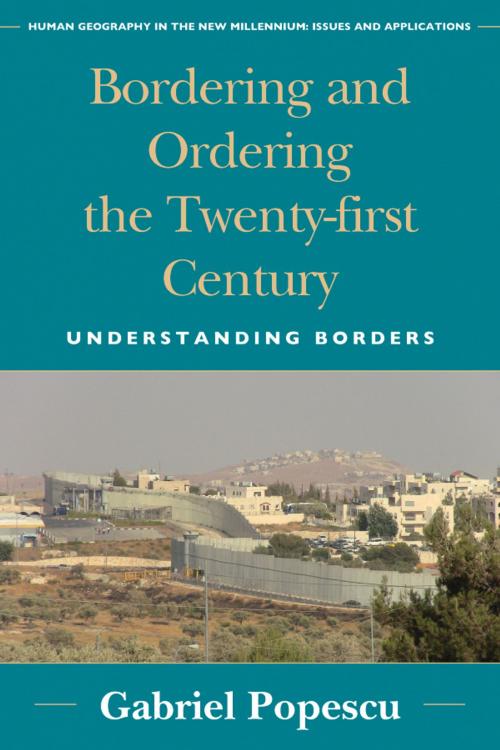Bordering and Ordering the Twenty-first Century
Understanding Borders
Nonfiction, Social & Cultural Studies, Social Science, Human Geography, Political Science, International, International Relations| Author: | Gabriel Popescu | ISBN: | 9781442213258 |
| Publisher: | Rowman & Littlefield Publishers | Publication: | October 16, 2011 |
| Imprint: | Rowman & Littlefield Publishers | Language: | English |
| Author: | Gabriel Popescu |
| ISBN: | 9781442213258 |
| Publisher: | Rowman & Littlefield Publishers |
| Publication: | October 16, 2011 |
| Imprint: | Rowman & Littlefield Publishers |
| Language: | English |
This timely book explores the central role that borders play in shaping the contemporary world. Building on a discussion of border thinking and making from antiquity to the present, Gabriel Popescu applies a critical eye to current border-making concepts, processes, and contexts. Throughout, he offers a balanced understanding of borders, explaining why and how interstate borders have emerged, whose interest they serve, who is involved in border making, and how border-making practices affect societies. Assessing the latest theoretical approaches to border studies, the author deftly incorporates a range of disciplinary perspectives, including geography, international relations, sociology, history, security studies, and anthropology. Popescu explores recent world events, discussing how current issues such as migration, terrorism, global warming, pandemics, the international human rights regime, outsourcing, the economic crisis, supranational integration, regionalization, and digital technology relate to borders and influence our lives. Written with a clear eye and voice, this book makes a complex subject accessible to a wide readership.
This timely book explores the central role that borders play in shaping the contemporary world. Building on a discussion of border thinking and making from antiquity to the present, Gabriel Popescu applies a critical eye to current border-making concepts, processes, and contexts. Throughout, he offers a balanced understanding of borders, explaining why and how interstate borders have emerged, whose interest they serve, who is involved in border making, and how border-making practices affect societies. Assessing the latest theoretical approaches to border studies, the author deftly incorporates a range of disciplinary perspectives, including geography, international relations, sociology, history, security studies, and anthropology. Popescu explores recent world events, discussing how current issues such as migration, terrorism, global warming, pandemics, the international human rights regime, outsourcing, the economic crisis, supranational integration, regionalization, and digital technology relate to borders and influence our lives. Written with a clear eye and voice, this book makes a complex subject accessible to a wide readership.















